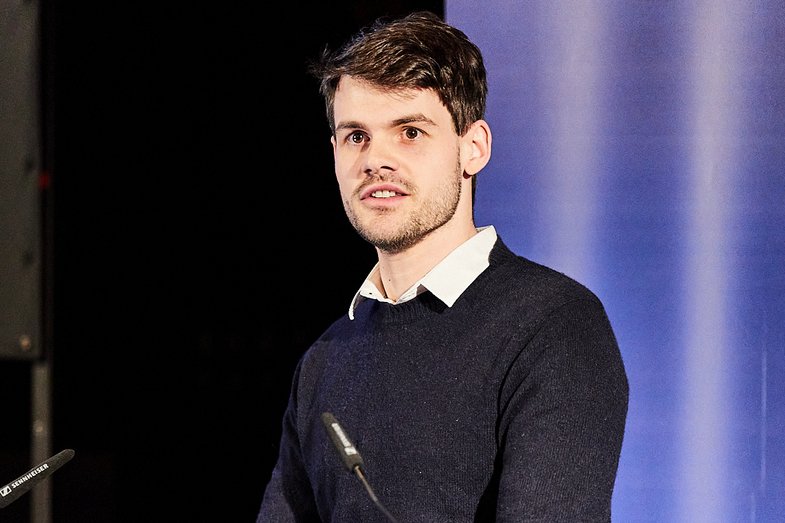
(Vienna, 8 April 2024) Máté Kiss, a doctoral graduate of MedUni Vienna, has been awarded the Young Investigator Award in the "Basic Science Award" category by the European Atherosclerosis Society (EAS) for a study on atherosclerosis. The study was carried out as part of his research in Christoph J. Binder's working group at MedUni Vienna's Clinical Institute of Laboratory Medicine and is the first to describe a key cellular pathway that could significantly improve our understanding of the disease and pave the way for a new therapeutic approach.
The Award committee’s motivation: “This study demonstrates an elegant and innovative approach, primarily conducted in mice but also leveraging datasets from human coronary arteries. It sheds light on the presence and functional significance of complement-producing macrophages in both murine and human atherosclerotic plaques, providing a unique perspective for complement therapies in atherosclerosis. The inclusion of human specimens within the presented data adds valuable translational insight, emphasizing the potential impact on clinical applications”
Máté G. Kiss is currently a postdoctoral fellow in the laboratory of Filip K. Swirski at the Cardiovascular Research Institute of the Icahn School of Medicine at Mount Sinai, New York. He completed his doctoral studies in the research group of Christoph J. Binder at the Medical University of Vienna, where he examined the effect of local versus systemic complement activation on immune cell function in the context of cardiovascular disease. His ongoing research – which is sponsored by an Erwin Schrödinger Postdoctoral Fellowship and the Friedman Brain Institute’s 2023 Doft Family Postdoc Innovator Award – focuses on identifying novel brain-body communication pathways via sleep preserves adequate adaptive immune responses at the neuro-immune interface to protect from cardiovascular and autoimmune disorders.
Rewarded Publication
Cell-autonomous regulation of complement C3 by factor H limits macrophage efferocytosis and exacerbates atherosclerosis;
Máté G. Kiss*, Nikolina Papac-Miličević*, Florentina Porsch, Dimitrios Tsiantoulas, Tim Hendrikx, Minoru Takaoka, Huy Q. Dinh, Marie-Sophie Narzt, Laura Göderle, Mária Ozsvár-Kozma, Michael Schuster, Nikolaus Fortelny, Anastasiya Hladik, Sylvia Knapp, Florian Gruber, Matthew C. Pickering, Christoph Bock, Filip K. Swirski1, Klaus Ley, Alma Zernecke, Clément Cochain, Claudia Kemper, Ziad Mallat, Christoph J. Binder; https://doi.org/10.1016/j.immuni.2023.06.026
*equal contributing